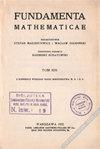单调正态性与纳布拉积
IF 0.5
3区 数学
Q3 MATHEMATICS
引用次数: 1
摘要
Roitman的组合原理$\Delta$等价于nabla乘积的单调正态性$\nabla (\omega +1)^\omega$。如果$\{ X_n : n\in \omega\}$是一个可度量空间族,并且$\nabla_n X_n$是单调正规的,那么$\nabla_n X_n$是遗传的仿紧的。因此,如果$\Delta$成立,那么盒子产品$\square (\omega +1)^\omega$是准紧凑的。$\Delta$的大片段保留在$\mathsf{ZFC}$中,产生了$\nabla (\omega+1)^\omega$的大的子空间,这些子空间是“真正的”单调正态的。在分别为:$\mathfrak{b}=\mathfrak{d}$, $\mathfrak{d}=\mathfrak{c}$或模型假设下,任意,大小为$\le \mathfrak{c}$或可分的可度量空间的可数nabla积单调正态。它是一致的和独立的,$\nabla A(\omega_1)^\omega$和$\nabla (\omega_1+1)^\omega$是遗传正态(或遗传似紧,或单调正态)。在$\mathsf{ZFC}$中,$\nabla A(\omega_2)^\omega$和$\nabla (\omega_2+1)^\omega$都不是遗传正常的。本文章由计算机程序翻译,如有差异,请以英文原文为准。
Monotone normality and nabla products
Roitman's combinatorial principle $\Delta$ is equivalent to monotone normality of the nabla product, $\nabla (\omega +1)^\omega$. If $\{ X_n : n\in \omega\}$ is a family of metrizable spaces and $\nabla_n X_n$ is monotonically normal, then $\nabla_n X_n$ is hereditarily paracompact. Hence, if $\Delta$ holds then the box product $\square (\omega +1)^\omega$ is paracompact. Large fragments of $\Delta$ hold in $\mathsf{ZFC}$, yielding large subspaces of $\nabla (\omega+1)^\omega$ that are `really' monotonically normal. Countable nabla products of metrizable spaces which are respectively: arbitrary, of size $\le \mathfrak{c}$, or separable, are monotonically normal under respectively: $\mathfrak{b}=\mathfrak{d}$, $\mathfrak{d}=\mathfrak{c}$ or the Model Hypothesis.
It is consistent and independent that $\nabla A(\omega_1)^\omega$ and $\nabla (\omega_1+1)^\omega$ are hereditarily normal (or hereditarily paracompact, or monotonically normal). In $\mathsf{ZFC}$ neither $\nabla A(\omega_2)^\omega$ nor $\nabla (\omega_2+1)^\omega$ is hereditarily normal.
求助全文
通过发布文献求助,成功后即可免费获取论文全文。
去求助
来源期刊

Fundamenta Mathematicae
数学-数学
CiteScore
1.00
自引率
0.00%
发文量
44
审稿时长
6-12 weeks
期刊介绍:
FUNDAMENTA MATHEMATICAE concentrates on papers devoted to
Set Theory,
Mathematical Logic and Foundations of Mathematics,
Topology and its Interactions with Algebra,
Dynamical Systems.
 求助内容:
求助内容: 应助结果提醒方式:
应助结果提醒方式:


